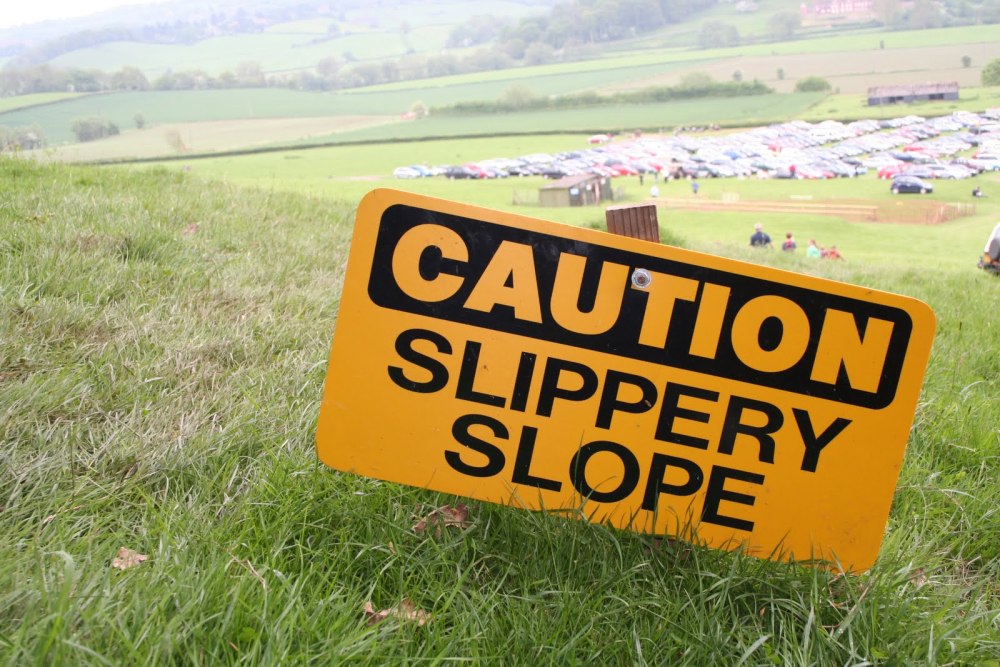By Mark
If you google “slippery slope,” the first result is a Wikipedia article describing a slippery slope argument as a fallacy. If you then google “fallacy,” another Wikipedia article appears first, describing it as “the use of invalid or otherwise faulty reasoning.”
I guess those who own Google and Wikipedia are on a side of the political spectrum that would find it very convenient to describe a slippery slope argument as invalid reasoning, but is it? How would we know? Does history bear this out?
There is an old saying: “Power corrupts and absolute power corrupts absolutely.” (Baron Acton, April 1887.) If you finish up as the worlds leading go-to source of information through legitimate development of high technology, all of a sudden you have this rather large amount of power to shape public opinion to what you want by making subtle changes to the priority of search results.
Maybe they could use that power better by having the earlier search results point to articles about the slippery slope that resulted from the Roe v Wade decision which now has partial birth abortion legalised in the USA. Or maybe the introduction of euthanasia in the Netherlands which now has the number of people euthanised by psychiatrists doubling approximately every three years.
Where does this end? Many could go on a lot more than me about the number of times we were told something wouldn’t be a problem and it turned out to be a big problem, but by that time the cement had set, and it was too late.
One of propaganda’s pillars is blatant deception. A denying that something inconvenient is even there. A forceful claim that one’s fears are unfounded and delusional. An attacking of the dissenter, the whinger, by that smooth-talking
We have been here before so many times. Maybe its time to learn to say no again, and to keep saying no.

